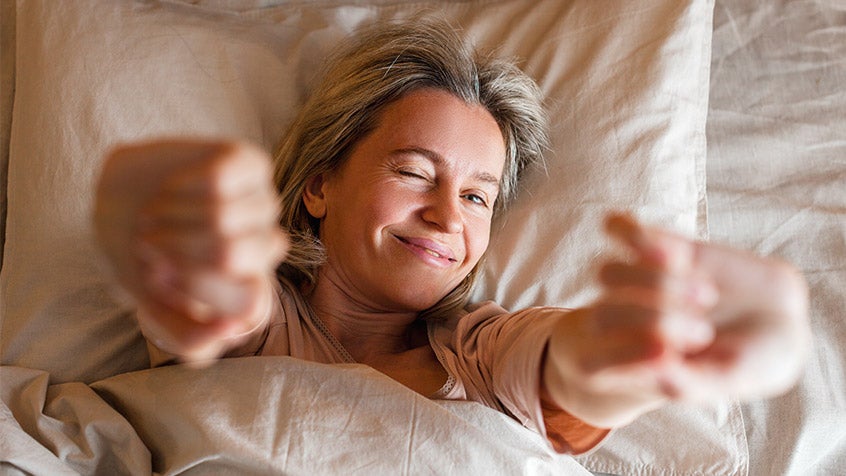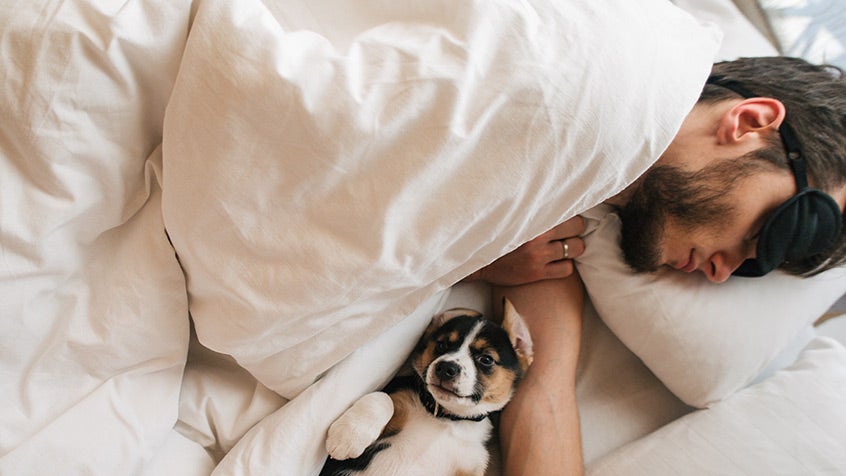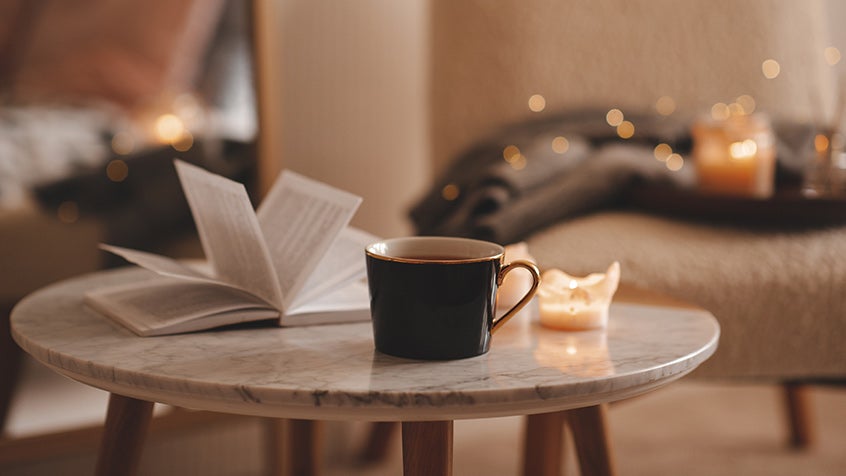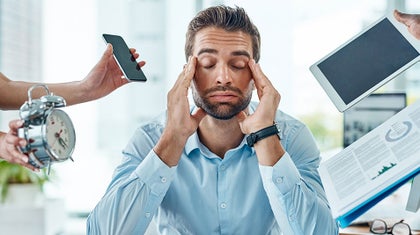Set yourself up for the best sleep ever
by Alec Graves on Thursday 11 January 2024
4 min read
Sleep is incredibly important. In fact, it’s so important that even moderate sleep deprivation, such as being awake for 17-19 hours, can produce effects matching a 0.05% blood alcohol level. While most of us do a good job of avoiding alcohol in the morning, it’s easy to let life, screens and other responsibilities get in the way of a good night’s rest.
The importance of quality sleep
Quality sleep affects more than just athletic performance and recovery – it aids in maintaining a healthy hormonal balance and immune system. Deep restful sleep releases growth hormones that aid in repairing stressed tissues, such as your muscles and nervous system post-workout.
REM and NREM sleep
Sleep actually consists of several distinct phases. But broadly speaking, these phases can be broken down into two categories: Non-Rapid Eye Movement (NREM) and Rapid Eye Movement (REM). All together, they make up four distinct phases, and we repeat a ‘cycle’ through each of these phases roughly every 80 to 100 minutes while sleeping.
NREM sleep
NREM sleep ranges from Stage 1 through to Stage 3. The first stage is typically so light you may not even realise you were asleep if you were jolted awake. The later stages of NREM are ‘deeper’, and being woken up suddenly during these later phases is where you might experience grogginess, mental fog or ‘sleep inertia’.
REM sleep
REM sleep is characterised by sustained periods of rapid eye movement – it’s also thought to be the phase where dreaming happens. Under ideal circumstances, REM sleep should make up about 25% of your total time asleep – starting short and progressively getting longer through each cycle until reaching a rough maximum of 1 hour.
Tips for improving sleep quality
From a health and wellness perspective, uninterrupted rest supports motivation, resilience, and a healthy immune system. But you’re not always going to be feeling relaxed and ready for a great night’s sleep at bedtime.
The trick is to establish routines. What these routines look like will differ from person to person, but they’re built around controlling some key factors that affect sleep duration and quality. Those factors include:
- Environment: Such as temperature, noises and unwanted light.
- Comfort: Such as your bedding, mattress and pillows.
- Lifestyle: Your diet and particularly caffeine intake.
- Technology: Screens before bed can interrupt your wind-down.
- Overall wellbeing: Stress is a killer of good rest and sleep.
Make yourself comfortable
Invest in quality pillows and blankets, and do what you can to minimise disruptive noises, lights or uncomfortable temperatures.
Establish a sleep schedule
Try going to bed and waking up at the same time each day. Establishing a consistent sleep schedule let’s your body know what to expect each day. And if you really want to take it to the next level, keep to the same sleep schedule on the weekend’s - it will make the early rises during the week a lot easier.
Create a pre-bedtime routine
Get your mind 'in the zone' before you start to snooze. We suggest at least an hour to completely unwind from the day. Depending on what you enjoy, you could try reading, drinking sleepy tea, stretching, a warm bath, calming music, a bedtime yoga flow, journaling, or even choose this time to pause and meditate.
Avoid screens and electronics
We know you've heard this one before... but it's crucial to 'turn off' from electronics and give your mind and eyes a break. Blue light from phones, TVs and computers has been shown to negatively affect the quality of our sleep. Avoid these for at least an hour before you get to bed.
Unwind, rest and recover with Virgin Active
Rest and recovery are essential to your long-term health. If you’re looking to fresh ways to recharge, try our spa, relax in the sauna, unwind in a Sound Bath class, or freshen up with our premium changeroom amenities with a free trial.
For more on sleep quality and getting a good night’s rest, check out our podcast with Dr. Lauren Tober: ‘Am I Getting Enough Rest?’
Related articles
Move
3 min read
Our 2026 ins and outs for wellness
Nourish
3 min read
Food mind games: how stress affects your appetite
Unwind
3 min read
Are you burnt out?
Enjoying our blog?
Sign up to our newsletter to get updates on training, healthy living, news and events.






